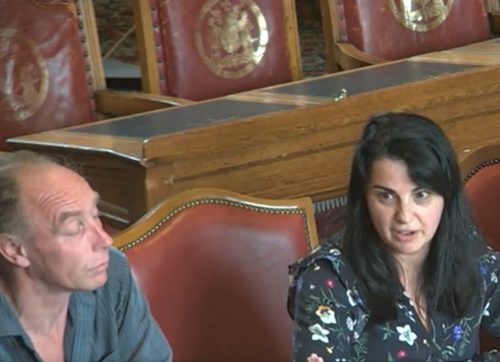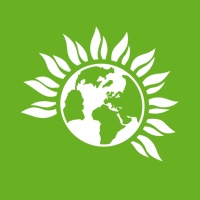Green councillors in Sheffield were the only ones to support declaring the city to be an Apartheid-free zone, as had been done in 1981 against South African Apartheid.
The argument came up when the council’s Strategy and Resources Committee debated a response to the petition brought by the Sheffield Coalition Against Israeli Apartheid and in the wake of the recent judgement of the International Court of Justice that found Israel to be operating a system of apartheid.
Councillor Douglas Johnson, who proposed the Green’s amendment, said,
“People in Sheffield see what is happening in Gaza and are horrified. Many people in the city are directly or indirectly affected. Taking a principled stand is relevant and important. The Council regularly comments on international affairs, not least when it recognised Palestine as an independent state.
“I accept there are legal constraints that were brought in by the Thatcher government when it wanted to stop councils’ boycotting South African goods. Despite that, the council may still take a political stand, even if the law limits the practical actions the council can take. A principled stand sends a message of solidarity to oppressed people.

“I therefore proposed that Sheffield declares itself ‘an Israeli Apartheid-free zone, insofar as legal considerations allow.’ This follows legal advice. I was glad to see this seconded by Cllr Angela Argenzio but then disappointed that the Chair of the Committee blocked the amendment being put to the vote.”
Cllr Angela Argenzio seconded the amendment and said:
“Whilst the local government act legally prohibits some actions, a symbolic declaration would be a powerful statement, especially given the recent ruling by the International Court of Justice and the long tradition of Sheffield City Council standing up for human rights wherever they may be abused”
It was then accepted by officers that a statement was possible, but that the decision couldn’t be taken at the meeting.
The implication was that declaring an apartheid free zone would negatively impact equality and cohesion, despite the impact assessment in the report recognising that taking no action as per officers’ recommendations “may not be welcomed by Palestinian and Arab people”. The report made no reference to the International Court of Justice’s finding that Israel is operating a system of apartheid or Sheffield’s declared aspiration to be an anti-racist city.
Labour and Liberal Democrat members of the Strategy & Resources Committee of Sheffield Council voted against declaring Sheffield an Israeli apartheid-free zone on the basis that it would be purely a symbolic gesture. They argued that as such it would be pointless and of no material benefit.
Members of the committee argued that, while they support Palestine, they didn’t think that making a gesture of support would be of any use. Many argued that they didn’t do gesture politics and one suggested that asking for further legal advice on Palestine would be a waste of money.
Click here for the full report taken to the Strategy and Resources committee, recommending a response to the petition.
Note: Section 17 of the Local Government Act 1988 prohibits local authorities from taking “non-commercial matters” such as the country of origin into account when contracting for goods or services. However, there are exceptions, not addressed in the council report, for equality issues.

